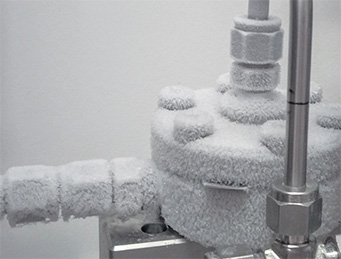
Carlyle Donevant earned a master’s degree in biomedical engineering from the University of South Carolina. Before joining Equilibar, he worked for Nephron Pharmaceuticals in Columbia, SC, where he did hands-on work for a large-scale pharmaceutical production. “I was involved in a continuous manufacturing process that formed, filled and sealed sterile vials,” Carlyle said. “I got a lot of experience in a short time as the company grew from 350 to just under 2000 employees in three years.”
Carlyle was attracted to Equilibar because it is a small, nimble company that can respond quickly to change. “I love to be involved in the design process in an environment where everyone’s thoughts and ideas are heard,” he said.
The outdoor opportunities of Western North Carolina were another big draw for Carlyle. “I started coming here in Boy Scouts and spent almost every weekend in the area when I was in college. I love everything outdoors, but I especially love whitewater paddling. In a way you could say I study fluid dynamics every time I go out on the water.”
In 2022, Carlyle joined Equilibar’s Single Use Technology team geared toward pharmaceutical and other sanitary applications. He will be growing his strong biomedical background while leading the company in industry conformance and collaborating on new product development. He continues to explore new markets for dome-loaded diaphragm fluid control. “It’s been surprising to see the depth of the Equilibar technology and how much we can do with our devices.”





